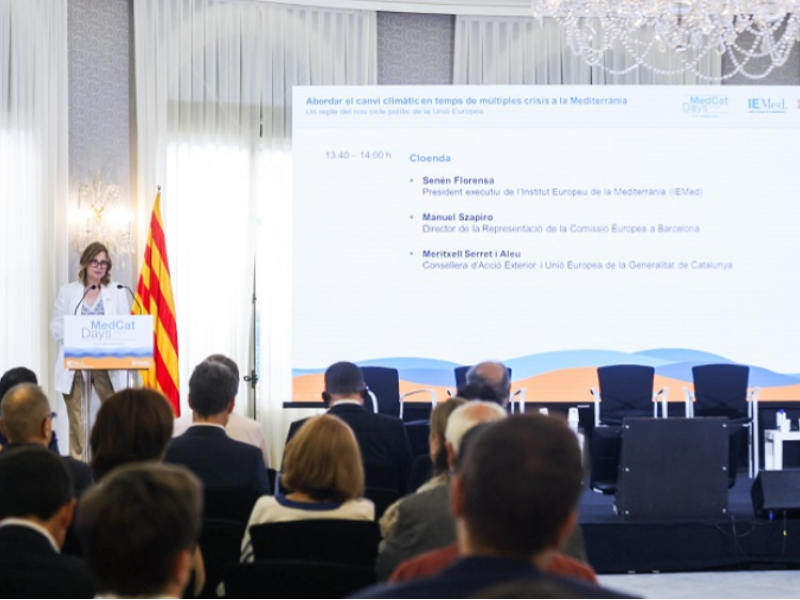- The Government of Catalonia has organised an event for the exchange of good practices between Mediterranean countries and regions for increased sustainability in urban environments
- The Catalan Urban Agenda has three main priorities: creating territorial balance, economic prosperity and social equity, taking advantage of the opportunities created by digitalisation and ecological transition
The Minister for Foreign Action and European Union, Meritxell Serret i Aleu, and the Minister for Territorial Planning, Ester Capella, took part in the conference Urban Agendas in the Mediterranean, designed by the Catalan Government as a forum for exchanging experiences and good practices between representatives of various countries and regions on both shores of the Mediterranean for the sustainable development of urban environments. Representatives from Morocco, Jordan, the Turkish city of Smyrna, the Italian region of Emilia-Romagna, Malaga and Barcelona attended.
The urban agendas that have been promoted by states, regions and even cities around the world in recent years have adapted the New Urban Agenda approved by the United Nations in 2016 to their respective levels of government. In Catalonia, this adaptation has taken the form of the Agenda for Towns and Cities Catalonia 2050.
Minister Serret highlighted the importance of contributing to the multilateral system of the United Nations, and said she was pleased that the UN-Habitat Global Urban Resilience Programme had chosen LesTerres de l’Ebre in southern Catalonia for its pilot plan: “It is an example of how governments that are closer to citizens contribute to global objectives like the sustainable development of cities.”
“We have the added value of knowing what our societies need, and being able to undertake policies and models adapted to the specific social, economic and ecosystemic characteristics of each territory,” she added. “The same pattern does not always apply to all territories, and we need this capacity for adaptation for local and regional governments to be recognised and taken into account in decision-making spaces,” she reiterated.
The Agenda of Towns and Cities Catalonia 2050 was drawn up by the Urban Assembly of Catalonia, a collegiate body made up of all the Catalan government bodies and representatives of the Catalan academic, associative, trade union and business fabric. The final document, approved by the government in October 2023, aims to address three priorities: territorial balance, economic prosperity and social equity, based on the horizon of 2050. This all involves two levers of opportunity – namely the digital transition and the green transition.
The conference on Urban Agendas in the Mediterraneantook place within the framework of MedCat Days 2024, which brought together various Euro-Mediterranean actors in Barcelona on 25 and 26 June to share opinions and agree on road maps to address common challenges, and especially climate change and drought.
The conclusions drawn will be presented at the Catalan institutions’ stand at the twelfth UN-Habitat World Urban Forum (WUF12), which will take place in Cairo, Egypt, from 4 to 8 November this year.


